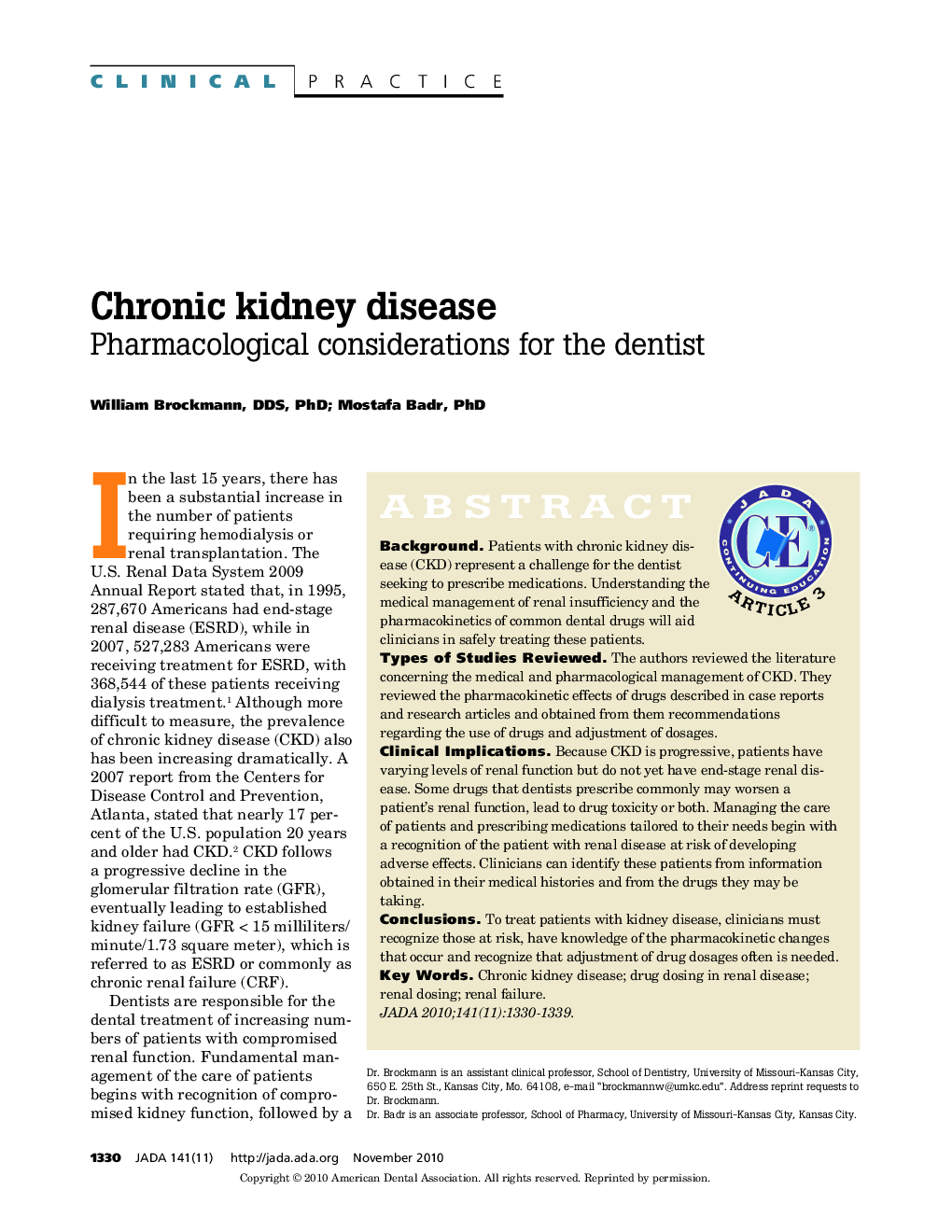| Article ID | Journal | Published Year | Pages | File Type |
|---|---|---|---|---|
| 3138467 | The Journal of the American Dental Association | 2010 | 10 Pages |
ABSTRACT BackgroundPatients with chronic kidney disease (CKD) represent a challenge for the dentist seeking to prescribe medications. Understanding the medical management of renal insufficiency and the pharmacokinetics of common dental drugs will aid clinicians in safely treating these patients.Types of Studies ReviewedThe authors reviewed the literature concerning the medical and pharmacological management of CKD. They reviewed the pharmacokinetic effects of drugs described in case reports and research articles and obtained from them recommendations regarding the use of drugs and adjustment of dosages.Clinical ImplicationsBecause CKD is progressive, patients have varying levels of renal function but do not yet have end-stage renal disease. Some drugs that dentists prescribe commonly may worsen a patient's renal function, lead to drug toxicity or both. Managing the care of patients and prescribing medications tailored to their needs begin with a recognition of the patient with renal disease at risk of developing adverse effects. Clinicians can identify these patients from information obtained in their medical histories and from the drugs they may be taking.ConclusionsTo treat patients with kidney disease, clinicians must recognize those at risk, have knowledge of the pharmacokinetic changes that occur and recognize that adjustment of drug dosages often is needed.
